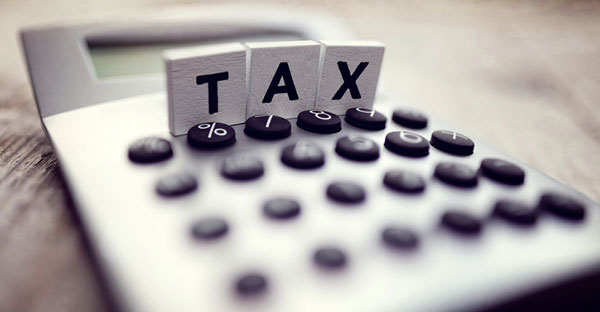Britain’s tax burden the highest for 70 years - and could rise
Think tank says tax hasn’t been higher since 1969, and the government might be forced to go even further.
1st February 2021 16:30
by Laura Miller from interactive investor
Think tank says tax hasn’t been higher since 1969, and the government might be forced to go even further.

The UK’s tax burden is at a 70-year high, according to a think tank that wants to persuade the government not to increase taxes further in the March Budget.
According to the Office for Budget Responsibility, the amount being paid in tax, as measured as a percentage of the country’s gross domestic product will rise by almost 1 percentage point to 34.2% next year. This would be the highest since 1969.
But analysis by the Taxpayers Alliance of the current level found that, on a five-year average basis, the tax burden is the highest since 1951.
The findings come as all eyes are on chancellor Rishi Sunak’s long-awaited Budget on 3 March, postponed from last year due to the coronavirus pandemic.
The chancellor wants to rebuild the public coffers after spending an estimated £271 billion on lending to businesses and payments to individuals during the pandemic.
There is speculation he could do this by raising capital gains tax to the same level as income tax and increasing to the rate of corporation tax
The Taxpayers’ Alliance is instead calling on the chancellor to “give taxpayers a respite from tax rises, rescue struggling sectors and revive the economy in the upcoming Budget”.
Mr Sunak told the BBC on 5 January, when announcing the March Budget date, that: “Economic support runs through to spring. I think the Budget in early March is an excellent opportunity to take stock of the range of support”.
A major plank of that support, the Job Retention Scheme, which is still paying 80% of the wages of millions of workers, is being wound up at the end of April.
Data shows a mixed picture for Britain’s personal finances, in a two-tier economy where some are managing to save and others are struggling.
Figures from the Office of National Statistics earlier this month suggest more than nine million people had to borrow more than usual by December 2020.
- Why is tax-free investing so important?
- Are you saving enough for retirement? Our calculator can help you find out
But data released by UK Finance also this month showed that credit card balances had fallen by 14.7% in a year.
At the end of March 2020, 31.6% of people said they would be unable to save for the year ahead, increasing to 38.4% in December, according to the Office for National Statistics.
But over £150 billion was saved into cash accounts last year, according to the Bank of England.
Full performance can be found on the company or index summary page on the interactive investor website. Simply click on the company's or index name highlighted in the article.
These articles are provided for information purposes only. Occasionally, an opinion about whether to buy or sell a specific investment may be provided by third parties. The content is not intended to be a personal recommendation to buy or sell any financial instrument or product, or to adopt any investment strategy as it is not provided based on an assessment of your investing knowledge and experience, your financial situation or your investment objectives. The value of your investments, and the income derived from them, may go down as well as up. You may not get back all the money that you invest. The investments referred to in this article may not be suitable for all investors, and if in doubt, an investor should seek advice from a qualified investment adviser.
Full performance can be found on the company or index summary page on the interactive investor website. Simply click on the company's or index name highlighted in the article.